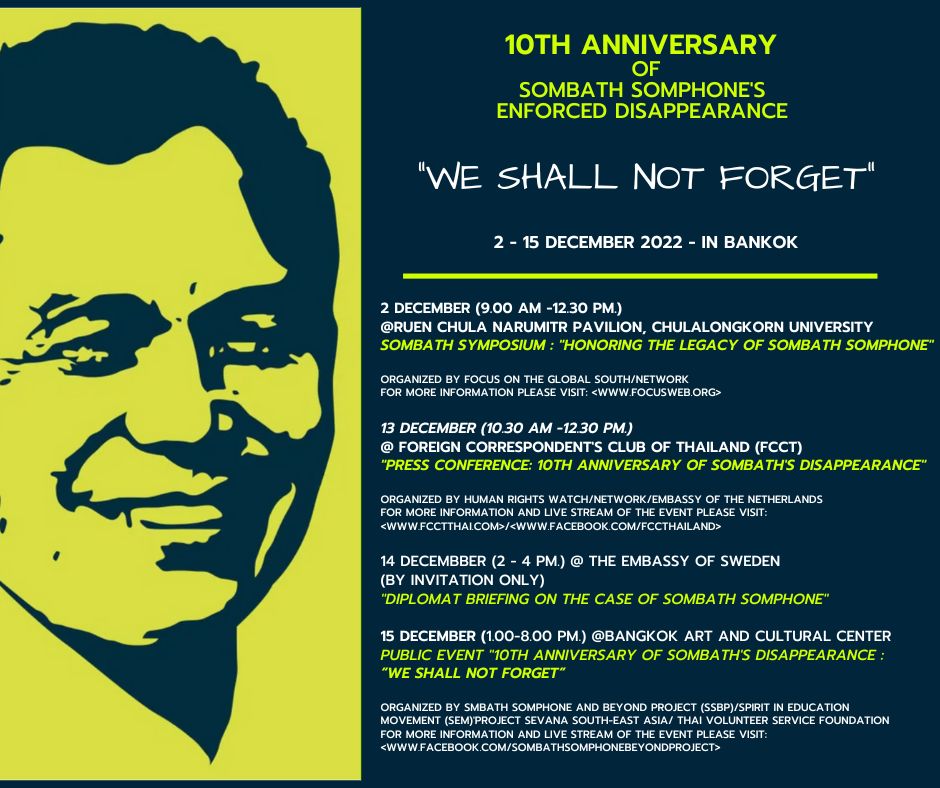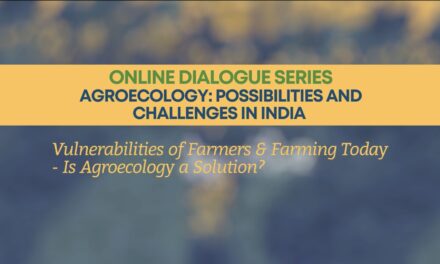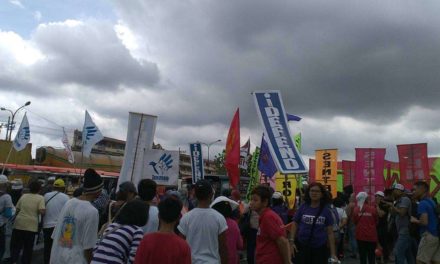The Sombath Symposium is part of a series of events under the umbrella theme of “We Shall Not Forget” from December 2 to December 15, the day that will mark ten years since Sombath was disappeared. The events seek to commemorate Sombath’s legacy, to demand justice for Sombath and his family, and to call for an end to enforced disappearance and persecution of people and communities who advocate for justice, sustainability, human rights and peace.

The event “Honoring the Legacy of Sombath Somphone,” held December 2 on Lao National Day in Ruan Chula Narumit at Chulalongkorn University—the same venue of the first Sombath Symposium on Humanity and Nature: Traditional, Cultural, and Alternative Perspectives six years ago—saw the coming together of activists, academics, and the human rights and diplomatic community in their continuing struggle for truth and justice for Sombath.
Friends and colleagues in the region shared their memories of Sombath and his work and enduring legacy on education and joyful learning, peacebuilding and sustainable development, agroecology and self-sufficiency, human and community rights, and youth participation and empowerment. The panel and open discussion also underscored how the ideas and approaches that Sombath practiced and advocated for are especially relevant in the present situation of economic downturn, accelerating climate change, increasing food insecurity, COVID-19 and the specter of continuing public health crises.
Toshi Doi of Mekong Watch opened the event by remembering Sombath as a son of Laos who has always been proud to be a Laotian. He lamented the fact that despite repeated demands to reveal Sombath’s fate and whereabouts, there have been no responses up to now as the calls fell on the Lao government’s deaf ears.

Sombath’s enforced disappearance is a heartbreaking crime against humanity and is not only a defeat for the international human rights community but also to the civil society movements for sustainable development according to Remco van Wijngaarden, Ambassador of the Kingdom of Netherlands to Thailand. He called on the Lao government to adopt a law on enforced disappearance and ensure that families receive the remedy of full reparation.
Peter Rosset of El Colegio de la Frontera Sur (ECOSUR) Advanced Studies Institute looked back on the 43 students who were vanished in Mexico eight years ago, who, like in the case of Sombath, symbolized the larger issue of enforced disappearance linked to the enforcement of capitalist, extractivist, and neoliberal development models. He argued that in cases of enforced disappearance, the state is always responsible, whether by omission or commission, and it is important for civil society to force the state to act.
Rosset also shared about the concept of “Senti-Pensante” connections in Latin America and the significance of connecting the “heart” and the “head” in moving people to positive action, as Sombath had also advocated for. He drew similarities between Sombath’s philosophies on agroecology, and his pioneering work on Rice-based Integrated Farming System and the global push by peasant movements of La Via Campesina (LVC) for food sovereignty and agroecology.
The educational paradigm advocated by Sombath is also reflected in LVC’s peer-to-peer education that seeks to change the pedagogy of rural schools, wherein community members are taught to take pride in being peasants and indigenous peoples as they share their knowledge and wisdom with the world.

The principle of “Joyful Learning” was the heart of the sharing of Kearrin Sims, a scholar at James Cook University in Australia. Sims has studied Sombath’s work around joyful and experiential learning, education for rural development, and working with young people, including his aspirations for Education for Sustainable Development and integrating more holistic forms of education into mainstream education systems.
He argued that the dominant development models do not emphasize the “heart” or the spiritual aspect and tend to overemphasize the material aspect, which leads to emotions and compassion being largely absent in modern, rationalist education systems. He ended by stating that the work of Sombath “has not and will not disappear; it is very much alive and is with us here in the present, as it continues to shape and reinform new debates.”

Human rights, civil liberties, fundamental freedoms, and the situation of community rights defenders in Southeast Asia facing judicial harassment, torture, enforced disappearance, and derailing of justice were the focus of the presentation of Angkhana Neelaphaijit of the United Nations Working Group on Enforced or Involuntary Disappearances (UN WGEID). According to Neelaphaijit, teachers and young students must also understand human rights: “Strong human rights education in the schools is important because even if states ratified international human rights conventions, it will be futile if people do not know about the process, mechanisms, and how to engage.”
Sombath’s work with rural peoples, civil society, and the government showed his ability in building partnerships and finding a common ground on which different perspectives and approaches can converge for meaningful exchanges, shared imagination, and cooperation for sustainable peace and development.
The final panel speaker shared about the work of a peacebuilder and how Sombath brought peace and justice to the Laotian communities. Ajahn Eakpant Pindavanija, a peace academic at the Chulalongkorn University Social Research Institute (CUSRI), talked about the core principle of peacebuilding in reducing and eliminating violence of all kinds, whether physical, cultural, and structural violence, including the injustices in laws, dominant economic systems, and poverty.
Ajahn Pindavanija warned that the path to truth will be difficult, with states continuing to consider cases of enforced disappearance as “matters of internal affairs” alongside ASEAN’s persistent adherence to the principle of non-interference. He added, “This is the time that we show our solidarity, our civil society, international and academic community in the pursuit of the truth, the only way we can attain justice for Sombath.”

Friends and colleagues of Sombath then shared their insights and memories working with Sombath, in an open discussion. Michael Victor talked about Sombath’s love for communication for development as a means to educate and get the youth involved and have access to information to become critical thinkers. He also shared his firsthand experience during the height of activity in 2002 at the Participatory Development Training Centre (PADETC), an all-Lao organization founded by Sombath in 1996.
Walden Bello of Focus on the Global South shared his recollection of joining a delegation of the ASEAN Parliamentarians for Human Rights (APHR) who went to Laos a few days after Sombath was disappeared. Bello noted the complete stonewalling of the Lao government officials they met and how they continually refused to acknowledge Sombath’s enforced disappearance. He called on everyone to continue with the struggle and intensify the pressure on the government of Laos, with ordinary citizens and the broader civil society pressuring governments for the truth to come out. Andrew Bartlett of Helvetas Laos said that Sombath’s disappearance is an inexcusable crime, but it should not obscure the light that permeated his work.

Friends in the region and across the world who joined virtually also shared their solidarity messages. Mary Aileen Bacalso of the International Coalition Against Enforced Disappearances (ICAED) called on everyone to “leave no stone unturned and persevere in our campaign for truth and justice for Sombath and all desaparecidos of the world.”
Edita Burgos of the Asian Federation Against Involuntary Disappearances (AFAD) thanked everyone for being the “voice of the voiceless, the victims of enforced disappearance.” Edita is a staunch human rights advocate and the mother of a disappeared young man in the Philippines, Jonas Burgos, who hoped to help farmers by teaching them what he learned about agriculture in college. Jonas was disappeared 15 years ago, in 2007, at the age of 37. She added, “These discussions bring hope that what Sombath could not accomplish while he was with his people, he can accomplish even in his absence.”

Farooq Tariq and Andy Rutherford of Asia Europe Peoples’ Forum (AEPF) also expressed their solidarity with the struggle for truth and justice. Sombath served as the Co-Chair of the Lao National Organizing Committee and gave the keynote speech at the opening session of the 9th AEPF in Vientiane in 2012, a few months before he was abducted. Tariq said, “Sombath is one of us, of the many people disappeared in Pakistan, India, across Asia, of those who stand up for equality and justice, whose voices are persecuted and attacked by authoritarian regimes.”
Rutherford shared how proud he is to celebrate the life, values and legacy of Sombath and will continue to do so every day: “I and the AEPF embrace the respect for Sombath’s work and ideas and approach to participation and working with young people” (…) “These are key foundations for a secure environment that encourages learning and reflection and provides space for open, respectful, diverse and constructive debate for people committed to genuine sustainable development.”

Ng Shui Meng, wife of Sombath, then gave her closing remarks about the difficulties of finding a theme for the 10th year anniversary of Sombath’s disappearance: “I was thinking over the past ten years, I have always spoken about what has happened, the violations, the injustice of enforced disappearance, the sadness that consumes all the victims and the families.”
She stated that the decision to organize the Sombath Symposium this year putting away the sadness (but not forgetting the injustice), and focusing on celebrating the life, values, and legacy of Sombath was a deliberate one, and she was grateful to hear about how everyone has managed to pull together Sombath’s ideas and principles that guided his work and put it into their own work, in different ways and interpretations.
“Today, we also hear that many of you work with people who are voiceless, who are subjected to structural violence and injustices, who cannot live peacefully, who do not have food on their tables,” said Shui Meng. “Sombath understood this very clearly because of his experience as a poor farm boy; he knows what hunger is, he knows what it is like to be unable to eat even one meal a day,” she added.

According to Shui Meng, giving back has always been the underlying driving force for Sombath to do what he has done: “Sombath knew what oppression is, what marginalization is” (…) “He basically draws from his own experiences and indigenous wisdom, the knowledge and values systems of the people he has lived with. [He was able to] distill them and make them relevant to his own surroundings by listening, observing, ‘joining all the ducks together’ and putting these into practice.”
Shui Meng also emphasized the importance of active participation, involvement, and communication as the foundations of Sombath’s model, “No one should be left behind, everybody has a right to voice their thoughts, concerns, and participate in a conversation, expressing their thoughts, however small, to put on the table, to tell their view of the world, and hopefully, their view will also translate to something that will not destroy their values.”

Shalmali Guttal of Focus on the Global South, on behalf of the co-organizers, formally closed the event underscoring the importance of remembering, “One of the ways not to forget is not just to keep on asking for justice but to honor the life of those disappeared and celebrate their legacy.”
Indeed, ten years after Sombath was disappeared, his legacy lives on — from the seed that he planted and cultivated in a small rural village along the Mekong River in southern Laos — that has blossomed into masses of flowers and trees in the region and the world. As communities, movements, and the people he inspired and continue to inspire remember and carry on his ideas and philosophies in their different but interconnected advocacies, campaigns, and struggles, Sombath’s vision remains very much alive.

Text by Galileo de Guzman Castillo; photos by Bianca Martinez
To read more about Sombath’s life, work, and statements and appeals on his enforced disappearance, please visit: https://www.sombath.org/en/
The full live streaming of the December 2 event may be watched at this link: https://www.facebook.com/focusontheglobalsouth/videos/1333424820754736/
For more details about the series of events commemorating the 10th year anniversary of Sombath’s enforced disappearance, please see poster below:









